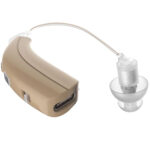Dental crowns play a crucial role in restorative dentistry by protecting and strengthening damaged teeth. If you’re searching for “dental crowns near me,” this article will guide you through the types of dental crowns available, their benefits, the process of getting dental crowns, and how to find reputable dental clinics offering this service in your area.
Understanding Dental Crowns
Dental crowns, also known as caps, are custom-made covers placed over damaged, weakened, or aesthetically flawed teeth to restore their shape, size, strength, and appearance.
Types of Dental Crowns
Ceramic crowns are made from porcelain-based materials that mimic the natural color and translucency of teeth, making them ideal for front teeth restorations.
Porcelain-Fused-to-Metal (PFM) Crowns
PFM crowns combine the strength of metal with the aesthetic appeal of porcelain, making them suitable for both front and back teeth restorations.
Gold Alloy Crowns
Gold crowns are highly durable and biocompatible, making them ideal for molars and teeth that withstand heavy chewing forces.
Zirconia Crowns
Zirconia crowns are known for their strength and durability, making them suitable for restoring severely damaged or cracked teeth.
Benefits of Dental Crowns
Dental crowns restore the function of damaged teeth, allowing for normal chewing, biting, and speaking abilities.
Protection of Weak Teeth
Crowns protect weak teeth from further damage and prevent cracks or fractures from worsening.
Cosmetic Enhancement
Crowns improve the appearance of teeth by covering stains, discoloration, misshapen teeth, or gaps between teeth.
Longevity
With proper care, dental crowns can last for many years, providing a durable solution for tooth restoration.
Process of Getting Dental Crowns
During the initial visit, the dentist will examine the tooth, take x-rays, and discuss treatment options, including the type of crown best suited for your needs.
Tooth Preparation
The dentist will prepare the tooth by removing any decayed or damaged portions and shaping it to accommodate the crown.
Impression Taking
An impression or digital scan of the prepared tooth and surrounding teeth is taken to create a custom-made crown that fits perfectly.
Temporary Crown Placement
A temporary crown may be placed over the prepared tooth while the permanent crown is being fabricated in a dental laboratory.
Permanent Crown Placement
Once the permanent crown is ready, usually within a few weeks, it is cemented or bonded onto the prepared tooth, restoring its function and appearance.
Finding Dental Crowns Near You
Use online directories, search engines, and patient reviews to find reputable dental clinics that offer dental crown services in your area.
Consult with Your Dentist
Ask your regular dentist for recommendations on experienced professionals who specialize in dental crowns and restorative dentistry.
Check Credentials and Patient Reviews
Verify the credentials and experience of dental professionals offering dental crown treatments, and read patient reviews to gauge satisfaction and quality of care.
Conclusion
Dental crowns are versatile restorative solutions that can enhance the function and appearance of damaged teeth. Whether you need a crown for cosmetic reasons or to restore a weakened tooth, finding the right dental clinic near you is crucial for achieving optimal results. By understanding the types of dental crowns available, their benefits, and the process of getting dental crowns, you can make informed decisions about your oral health. Invest in dental crown treatment today to restore your smile and maintain long-term dental wellness.














